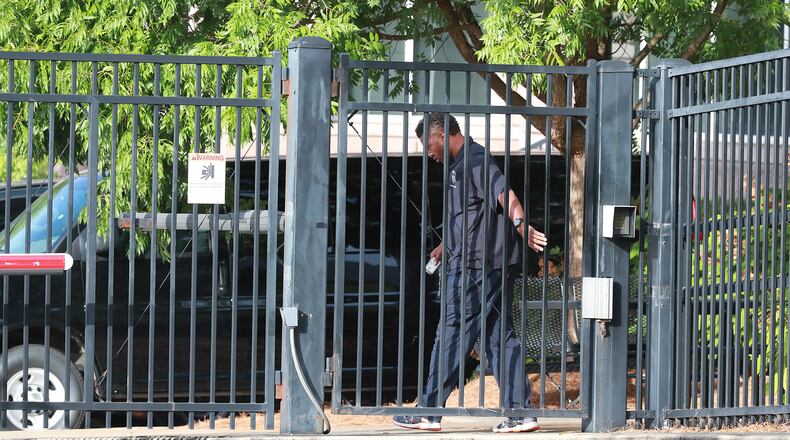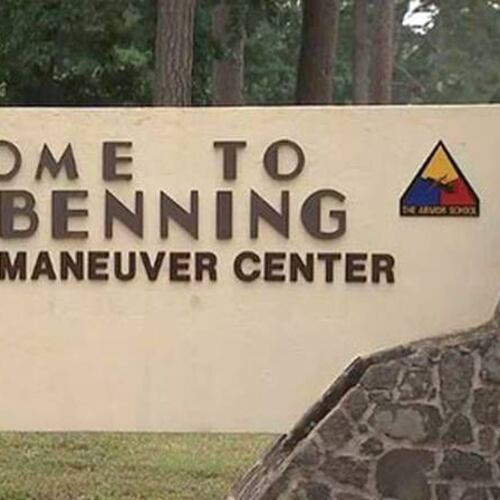The line of apartment complexes on Sweetwater Road in Lawrenceville was quiet as self-proclaimed “ICE Chasers” pulled up in a sedan early Sunday morning.
The stillness meant that agents from Immigration Customs and Enforcement were not rounding up unauthorized immigrants in the heavily Latino neighborhood. By early Sunday evening, there also wasn’t any other evidence that large-scale enforcement raids expected to begin this weekend in 10 major cities were underway in metro Atlanta.
Still, the threat of detention left pews in houses of worship and corridors in shopping malls emptier than usual as many immigrants illegally in the country opted to stay home.
An ICE spokesman declined to comment on any enforcement actions around Atlanta Sunday or any future operations that could come later in the week. He said ICE is simply enforcing federal laws.
About 30 volunteers with the immigrant advocacy group Georgia Latino Alliance for Human Rights woke up early to respond in case the organization received tips of ICE activity on a widely distributed hotline number. The self-described ICE Chasers, who try to document raids, patrolled neighborhoods with significant immigrant populations starting at 6:30 a.m.
None of the dispatched volunteers encountered enforcement agents knocking on doors, something immigrant advocates had feared after President Donald Trump said Friday heightened ICE raids would begin Sunday. Instead, advocates turned their focus to handing out posters with directions for handling a confrontation with ICE to residents walking their dogs or having a smoke.
Multiple press reports late last week said the raids were expected to unfold over several days and target at least 2,000 immigrants across the country who crossed the southwest border recently and remained in the country after being ordered deported.
The impact of the threatened roundups could be felt at the Episcopal Cathedral of St. Philip in Buckhead. Nearly 30 people attended the Spanish-language service in a side chapel, a little more than half as many as on a typical Sunday. Archdeacon Juan Sandoval said many of those absent were likely too fearful to come.
Sandoval asked attendees to pray for their "neighbors" in federal detention facilities and ended his sermon with three words: "Sí, se puede." The phrase became a rallying cry among Mexican agricultural workers in the southwestern U.S. in the 1970s.
While not a normal utterance at mass, Sandoval said he felt he needed to use the phrase, which literally means “It can be done,” to encourage his congregants to pray and persevere through difficult times.
The usually bustling Plaza Fiesta shopping center on Buford Highway also felt idle, Luz María said. The dress vendor, who declined to give her last name, said the mall is often so busy on Sundays there’s barely any space to walk.
“I’ve never seen it [so empty] in the 19 years I’ve worked here,” she said in Spanish. “I think it must be fear that’s keeping people away.”
Mauricio came to the mall with his 14-year-old daughter to grab a bite to eat and let her play arcade games. The Guatemalan national, who declined to provide his last name, said the thought of being separated from his family scares him as an unauthorized immigrant. But he said he ventured out because children need something to do on a Sunday.
“They need to play and eat,” he said. “It’s not that long until they go back to school.”
Patricio Cambias, one of the ICE Chasers, said Trump’s promise of raids was intended as much to intimidate unauthorized immigrants as enforce federal law.
Bryan Cox, an ICE spokesman, said Cambias’ characterization was inflammatory and untrue. Anyone critical of ICE’s actions should take it up with their elected officials, not the agency that enforces federal law, he added.
About the Author
Keep Reading
The Latest
Featured



